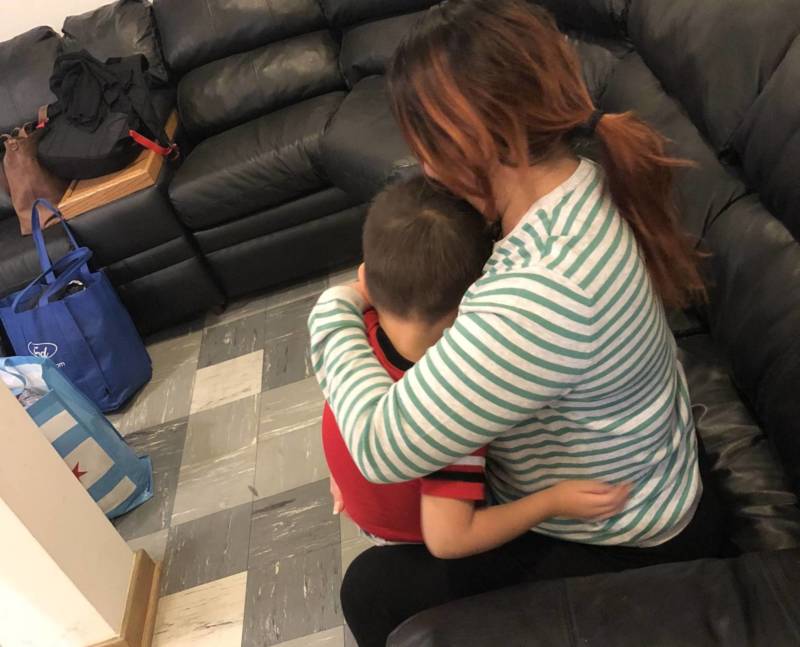“While I was there I suffered so much,” she said. “I couldn't sleep. I had nightmares. Sometimes I trembled.”
Meanwhile, J. was turned over to the Office of Refugee Resettlement, part of the U.S. Health and Human Services agency responsible for unaccompanied migrant children, and placed in a Chicago facility. He regressed in his toilet training and his development slowed, according to attorneys representing the family.
Two months went by before Yvette was able to speak with her son by phone, Yvette said, and it was another three weeks before their second call because she didn’t have initially have the money to pay for them.
Yvette said ICE staff told her that her son had stopped eating. She was then able to get a job in the detention center and pay for her own calls, she said, adding that when her attorneys got involved, she was able to speak to J. every week.
But after three months, Yvette was denied custody of J. due to an arrest warrant in El Salvador that alleged she was affiliated with a gang. She denied the allegation, insisting that she fled her home country seeking protection from gang members who had beaten her severely.
Most of the other parents deemed unfit by the government to regain custody of their children also had alleged criminal backgrounds.
In a September order, Sabraw refused to reunite Yvette and J., as well as a father and his son, deferring to the government, which he said had “vetted these parents in good faith and made principled decisions” for the children’s safety.
At that point, the National Immigrant Justice Center took on Yvette’s case and filed a suit on her behalf in federal court in Washington, D.C. They hired an attorney in El Salvador to investigate the allegations against her, and he found no basis for them.
“She was cross-examined by the government prosecutor for over an hour,” said attorney Lisa Koop, who represented Yvette at her asylum hearing. “They had every opportunity to bring any evidence that they had that she was in any way affiliated with a gang, and they had nothing.”
Finally, on Nov. 27, U.S. District Judge Paul Friedman in Washington, D.C., ordered the government to reunite Yvette with J. Three days later, mother and son were brought together at an ICE family detention center in Dilley, Texas, and released within hours.
The experience, say J.'s lawyers, could still impart traumatic scars.
“When he sleeps, he wants to sleep hugging me,” Yvette said. “When I move a little bit away from him he gets scared because he thinks I'm going to go away again.”
Lawyers with the American Civil Liberties Union, who brought the family separation lawsuit before Judge Sabraw, say they are considering whether to challenge the government on behalf of other “unfit” parents who otherwise could remain permanently separated from their children.
